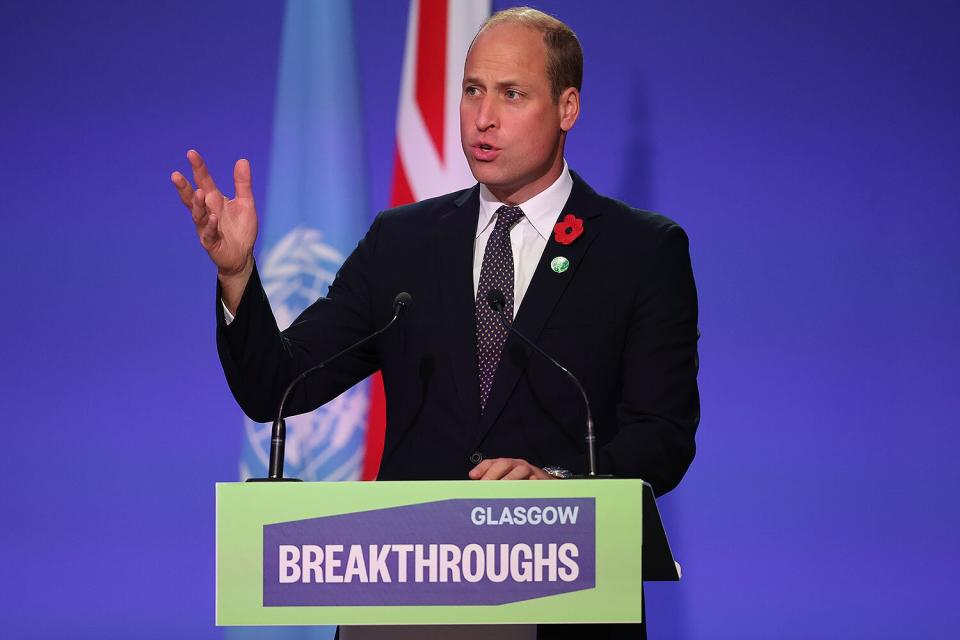Prince William Shares Personal Tweet After Coroner Says Social Media Played a Part in Teen's Death

Steve Reigate - Pool / Getty
Prince William is calling for protection for young people online following the news that social media contributed "more than minimally" to the death of 14-year-old Molly Russell in 2017.
William tweeted from the Prince and Princess of Wales' official account, signing with his first initial to indicate the personal nature of the tweet.
"No parent should ever have to endure what Ian Russell and his family have been through," he said. "They have been so incredibly brave. Online safety for our children and young people needs to be a prerequisite, not an afterthought. W"
Ian Russell, the father of Molly, has called for changes at the highest level, asking social media sites to prioritize safety for children, the BBC reported.
After the hearing finished on Friday, Molly's father Ian Russell said: "It's time to protect our innocent young people instead of allowing [social media] platforms to prioritize their profits by monetizing the misery of children."
RELATED: Why Prince William Is Boycotting Social Media This Weekend
An official inquest led by Coroner Andrew Walker concluded that Russell's daughter died from an act of self-harm and said the images of self-harm and suicide she viewed "shouldn't have been available for a child to see." He also said that Instagram and Pinterest used algorithms that showed Molly the images without her seeking them.
"It is likely that the above material viewed by Molly, already suffering with a depressive illness and vulnerable due to her age, affected her mental health in a negative way and contributed to her death in a more than minimal way," Walker said.
No parent should ever have to endure what Ian Russell and his family have been through. They have been so incredibly brave. Online safety for our children and young people needs to be a prerequisite, not an afterthought. W
— The Prince and Princess of Wales (@KensingtonRoyal) September 30, 2022
Prince William, 40, has been following the story, reaching out to the family in 2019 after the initial inquest into Molly's death. The Prince of Wales planned at the time to "get in touch and offer sympathy and show support" to the family, a royal source told PEOPLE.
Cyberbullying is something that the royal has been concerned about for several years. In 2016, he set up the Taskforce on the Prevention of Cyberbullying, which brought together players from the online, tech and youth sectors to see what measures could be taken to combat the rise in harassment and the alienation felt by some young people online.
"This is something he feels passionate about and he wanted to show his support," the royal source said.
The father of three sat down with British TV host and presenter Lucy Alexander in 2017 to discuss the role of social media in her son Felix's death by suicide. They were also joined by Chloe Hine, who attempted to take her own life after being bullied online.
"I think it is worth reminding everyone [that] the human tragedy of what we are talking about here isn't just about companies and about online stuff — it's actually real lives that get affected," William said after listening to their stories. "And the consequences, that is the big thing, the consequences of what happens if things are not kept in check in terms of what we say and what we do. We are still responsible for our own actions online — this anonymity, as you were saying, is really, really dangerous."
You can watch The Duke share his motivation to tackle cyberbullying with Lucy and Chloe here → pic.twitter.com/FFWwQMy1Tc
— The Prince and Princess of Wales (@KensingtonRoyal) November 15, 2017
In February 2018, Prince William surprised students at a London school to discuss cyberbullying.
"I worry for you girls," he told students at Burlington Danes Academy during the assembly.
Speaking with teens Samara Hackett-Valton and Sophie Crowder, William shared his concerns over body image and how women are portrayed online.
"The touched-up pictures are not real," he said. "Don't try to recreate them or think that's what you've got to aim for. There's a lot of fakeness online, so don't worry about that."
If you or someone you know is considering suicide, please contact the National Suicide Prevention Lifeline at 1-800-273-TALK (8255), text "help" to the Crisis Text Line at 741-741 or go to suicidepreventionlifeline.org.

 Yahoo Movies
Yahoo Movies 